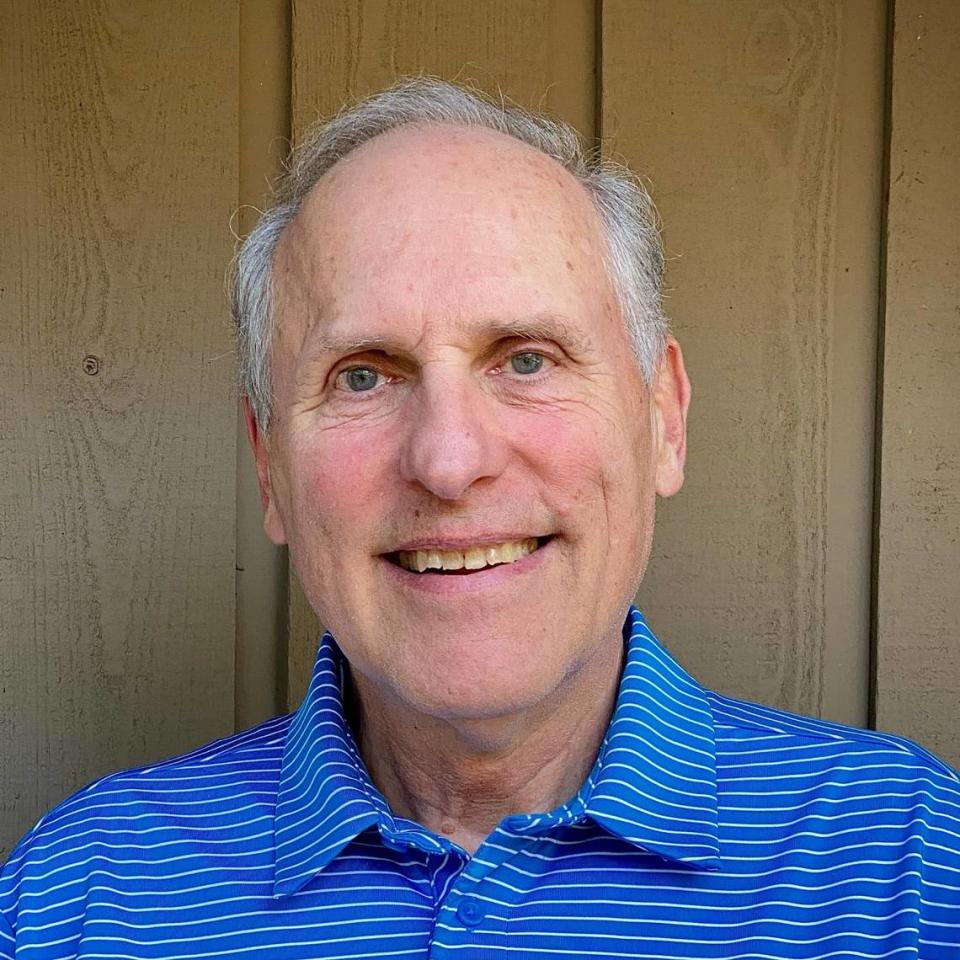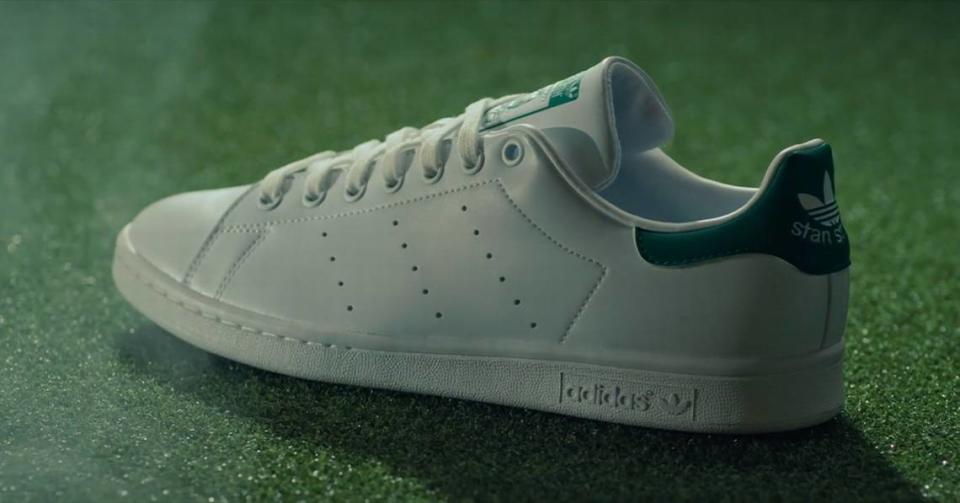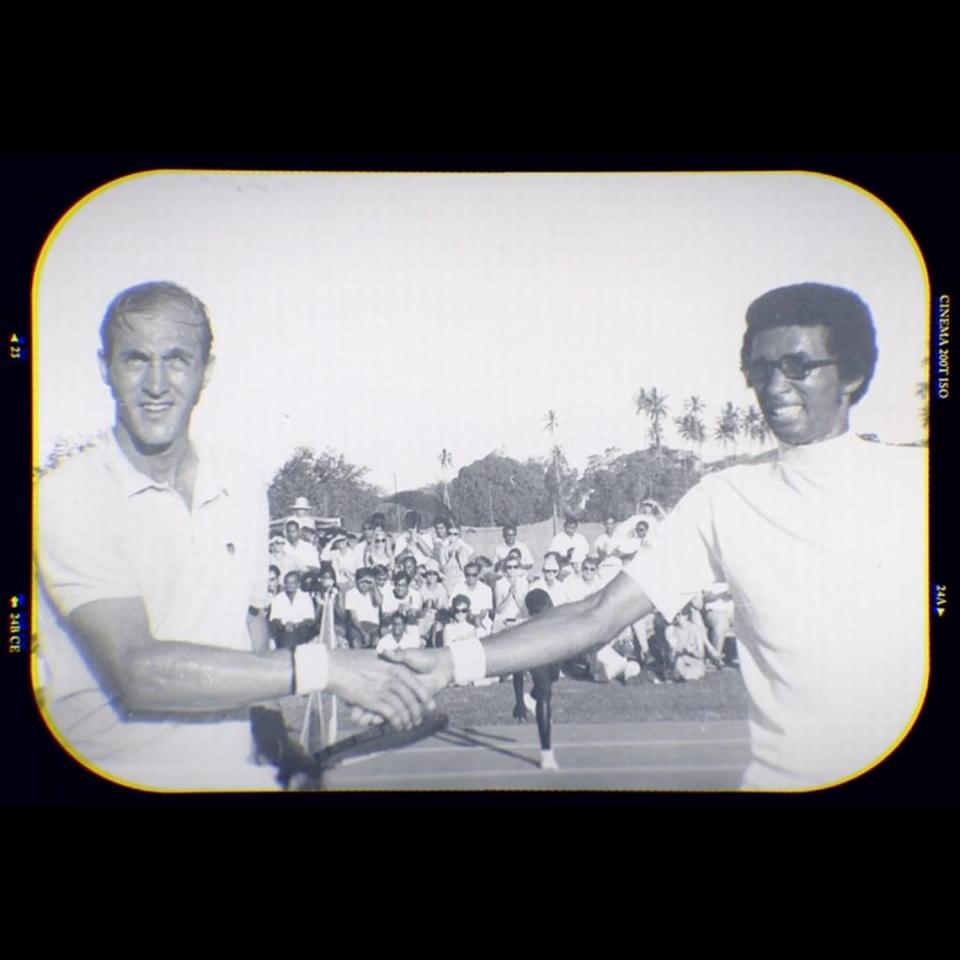Who is Stan Smith of Hilton Head? Think hip-hop shoe. But think bigger. | Opinion
Who is Stan Smith? More to the point, who is Mark Mathabane?
As it turns out, you can’t know Stan Smith until you know Mark Mathabane.

Mathabane’s story was revealed to the world in 1986 with his best-selling autobiography, “Kaffir Boy: The True Story of a Black Youth’s Coming of Age in Apartheid South Africa.”
Mathabane escaped the Black ghetto of Alexandria, near Johannesburg, South Africa, where his mother was sold into marriage and 200,000 people lived in one square mile of squalor under the boot of racial oppression.
Mathabane got to America with the help of Stan Smith and Smith’s dear friend, the late Arthur Ashe. Here, he earned a college degree, became an author featured by Oprah Winfrey, a public speaker, college professor and father of three children educated at Princeton University.
That was not in my “Who is Stan Smith?” file.
But for Stan and Margie Smith, the “Kaffir Boy” was more like a son, spending Christmases around the tree of a man most of the world knows only as a classic white tennis shoe.

“Who Is Stan Smith?” is the title of a new documentary on the life of the American tennis icon. The film had its hometown premiere last week at Park Plaza Cinema on Hilton Head Island. That followed a world premiere in Los Angeles, home of its Spring Hill production company co-founded by LeBron James and Maverick Carter.
The 95-minute film directed by Danny Lee is now in more than 70 markets nationwide.
It features John McEnroe; Bob Lutz, Smith’s longtime doubles partner; super-agent Donald Dell, who has worked for 50 years on a handshake basis with Smith, and whose latest deal with Adidas is a contract in perpetuity; the love story with Margie Gengler Smith, who was the undefeated captain of the women’s tennis team in the first co-ed class at Princeton University; and Jeanne Moutoussamy-Ashe, widow of Arthur Ashe and a photographer who produced a beautiful book on Daufuskie Island.
The film springs from the 2018 book, “Stan Smith: Some People Think I’m a Shoe!” that recounts the simple leather tennis shoe named for a quiet guy from Pasadena who makes Mister Rogers look zany and the shoe’s unlikely step into the throbbing pop-culture world of Jay-Z, Pharrell, DMC and David Bowie.
Hilton Head has been Smith’s home since 1971 when he became ambassador of tennis for Sea Pines.
Here, he is the Boys & Girls Club, where Margie tutors several days a week and he co-chaired, with David Ames, the capital campaign for their new building. He is trustee emeritus of the Heritage Classic Foundation. He’s a member of Providence Presbyterian Church.
We’ve seen Stan and Margie, who will celebrate their 50th anniversary this year, raise four children into successful adults who have a total of 17 children of their own.
We know Stan rose from the public courts of Pasadena to achieve audacious goals the film shows being penciled onto a pad when he was 16 years old, only four years after getting his first tennis racket. That list included: Make the Davis Cup team, become No. 1 in the United States, win at Wimbledon, become No. 1 in the world.
But maybe we didn’t know until the film showed us that Smith was downright radical when he was a leader for rights of players in the 1973 boycott at Wimbledon. It cost him the defense of his men’s singles title.

And we saw his lily-white world open to new perspectives through his friendship with Arthur Ashe. That is the heart of the film, and perhaps best tells who the shoe really is.
“Hopefully, people will get a perspective of helping out somebody else who might be in need …” Smith said in an interview on the Badaboom podcast.
“I think we need to have that in the world now, and respect for other people and their views, and the willingness to step out and try to make an impact in the world instead of just being a spectator.”
David Lauderdale may be reached at LauderdaleColumn@gmail.com.

